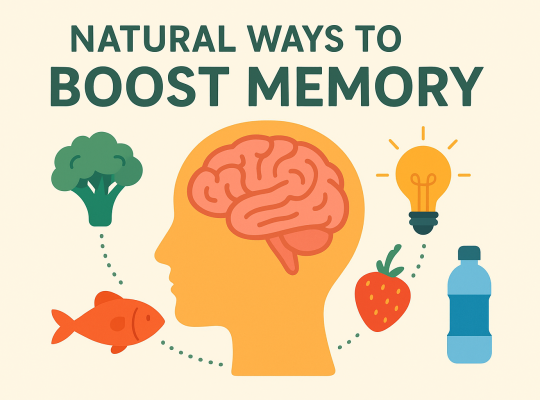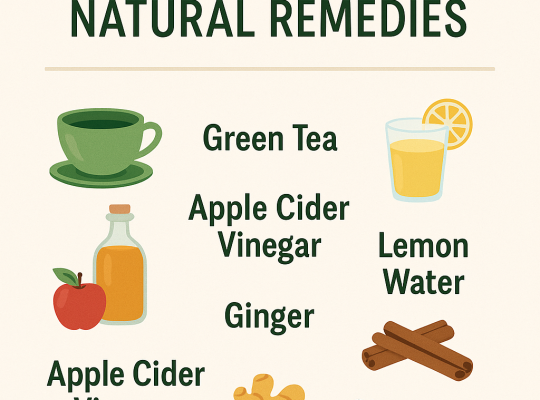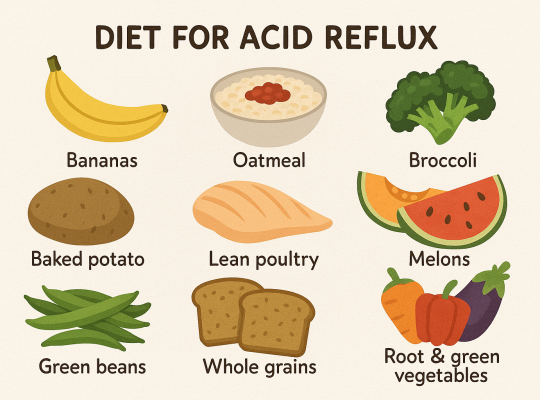Stress is an unavoidable part of life. From work deadlines and financial pressures to family responsibilities and health challenges, everyone experiences stress in one form or another. But while some stress can motivate us to perform better, chronic stress can have serious consequences on our physical and mental well-being.
The good news? You don’t need to rely on medications to manage stress effectively. With the right habits, mindset, and lifestyle changes, you can reduce stress naturally and feel more in control of your life.
In this comprehensive guide, we’ll explore natural, science-backed strategies to help you manage stress without medication.
Why Managing Stress Naturally Matters
Before diving into the techniques, let’s quickly understand why stress management is important—and why natural approaches are often better than relying on medication.
The Downsides of Chronic Stress:
-
Suppressed immune system
-
Increased risk of heart disease, obesity, and diabetes
-
Poor sleep and fatigue
-
Anxiety and depression
-
Digestive issues
-
Memory and concentration problems
Why Go Natural?
While medications can offer short-term relief for anxiety or sleep disturbances, they often come with side effects like dependency, fatigue, or even hormonal imbalances. Natural methods work with your body to improve resilience, emotional balance, and long-term health.
1. Breathe Deeply and Mindfully
One of the simplest and most powerful ways to manage stress is right under your nose—literally. Deep, intentional breathing calms the nervous system and signals to your body that you’re safe.
Try This:
4-7-8 Breathing Technique
-
Inhale through your nose for 4 seconds.
-
Hold your breath for 7 seconds.
-
Exhale slowly through your mouth for 8 seconds.
-
Repeat for 4–6 cycles.
Why it works: Deep breathing slows the heart rate, lowers blood pressure, and reduces levels of cortisol (the stress hormone).
2. Move Your Body
Physical activity is a natural stress reliever. It releases endorphins—your body’s feel-good chemicals—and reduces tension in the muscles.
Great Stress-Relieving Exercises:
-
Walking or jogging
-
Yoga or tai chi
-
Dancing
-
Stretching or Pilates
-
Cycling or swimming
Why it works: Movement helps regulate your mood, boosts self-confidence, and improves sleep—all critical components in managing stress.
3. Prioritize Quality Sleep
Sleep and stress have a two-way relationship: stress can make it harder to sleep, and lack of sleep can increase stress. Getting quality rest is essential to breaking this cycle.
Tips for Better Sleep:
-
Stick to a consistent bedtime
-
Avoid screens 1 hour before bed
-
Keep your bedroom cool and dark
-
Avoid caffeine late in the day
-
Try calming teas like chamomile or valerian root
Why it works: Sleep repairs the brain and body, improves emotional regulation, and helps you cope with stress more effectively.
4. Eat Stress-Fighting Foods
Your diet plays a surprisingly big role in how your body handles stress. Certain foods can either aggravate or alleviate it.
What to Eat More Of:
-
Leafy greens (spinach, kale) – high in magnesium
-
Berries – rich in antioxidants
-
Fatty fish (salmon, mackerel) – contains omega-3s
-
Nuts and seeds – especially almonds and sunflower seeds
-
Whole grains – support steady blood sugar
What to Limit:
-
Sugar and refined carbs
-
Caffeine and alcohol
-
Highly processed or fried foods
Why it works: Nutrient-rich foods help stabilize your mood, energy, and brain function.
5. Practice Mindfulness and Meditation
Mindfulness means being present in the moment—without judgment. It’s one of the most effective natural methods for reducing stress and anxiety.
Try This:
-
Sit in a quiet space
-
Close your eyes and focus on your breath
-
If your mind wanders (and it will!), gently bring it back to your breath
-
Start with 5–10 minutes daily
You can also try guided meditations through apps like:
-
Headspace
-
Calm
-
Insight Timer
Why it works: Mindfulness trains your brain to pause, reflect, and respond more calmly to challenges.
6. Limit Screen Time and News Consumption
The digital world can be a significant source of stress. Constant exposure to emails, social media, and negative news stories can leave you feeling drained and anxious.
Tips:
-
Set time limits on social apps
-
Turn off non-essential notifications
-
Create tech-free hours (especially before bed)
-
Curate your news intake to once or twice a day
Why it works: Reducing digital clutter gives your brain a chance to reset and recharge.
7. Stay Connected to Others
Social support is one of the most powerful buffers against stress. Simply talking to someone you trust can lighten your mental load.
Try This:
-
Call a friend or family member
-
Join a local club or group
-
Volunteer for a cause you care about
-
Talk to a therapist or counselor
Why it works: Connection builds emotional resilience and reminds you that you’re not alone.
8. Get Out in Nature
Spending time outdoors can significantly reduce stress and anxiety levels, even if it’s just for a few minutes each day.
Try This:
-
Take a walk in the park
-
Sit under a tree and listen to the birds
-
Watch the sunset or sunrise
-
Tend to a small garden
Why it works: Nature has a calming effect on the brain. It lowers blood pressure, reduces cortisol, and increases feelings of well-being.
9. Write It Out
Journaling can be an excellent outlet for releasing stress and organizing your thoughts.
Types of Journaling:
-
Gratitude Journal – List 3 things you’re grateful for daily.
-
Stream-of-Consciousness – Write freely for 5–10 minutes.
-
Prompt Journaling – Reflect on questions like “What’s weighing on me today?” or “What can I control?”
Why it works: Writing helps you process emotions, track patterns, and gain new insights into what’s causing stress.
10. Laugh More Often
Yes—laughter really is medicine. It lowers stress hormones, releases endorphins, and even boosts your immune system.
Try This:
-
Watch a funny movie or sitcom
-
Read or listen to comedy podcasts
-
Share jokes with friends
-
Spend time with playful people
Why it works: Laughter triggers relaxation responses and creates positive emotional shifts.
Bonus: Aromatherapy and Herbal Support
Essential oils like lavender, peppermint, and eucalyptus have calming effects on the mind and body. Herbal teas such as ashwagandha, passionflower, and lemon balm can also help relieve tension.
Quick Ideas:
-
Use a diffuser with lavender oil
-
Add essential oil drops to your bath
-
Sip herbal tea in the evening
Putting It All Together
You don’t need to try everything at once. Start with one or two practices and build from there. Natural stress management is all about creating daily habits that nurture your body, calm your mind, and center your spirit.
Here’s a Recap of the Top Natural Stress-Relief Strategies:
| Technique | Why It Works |
|---|---|
| Deep breathing | Calms the nervous system |
| Physical movement | Boosts mood & reduces tension |
| Quality sleep | Restores body and mind |
| Healthy diet | Supports brain and energy levels |
| Meditation | Trains mental resilience |
| Reduce screen time | Limits mental overload |
| Social connection | Provides emotional support |
| Time in nature | Lowers stress hormones |
| Journaling | Helps process emotions |
| Laughter | Elevates mood and relieves tension |
Final Thoughts
Managing stress naturally doesn’t require a complete life overhaul—just small, consistent steps in the right direction. These simple tools are available to everyone, and best of all, they come with zero side effects.
Remember: You are not powerless against stress. By making intentional choices every day, you can take back control and live a more peaceful, balanced life.










